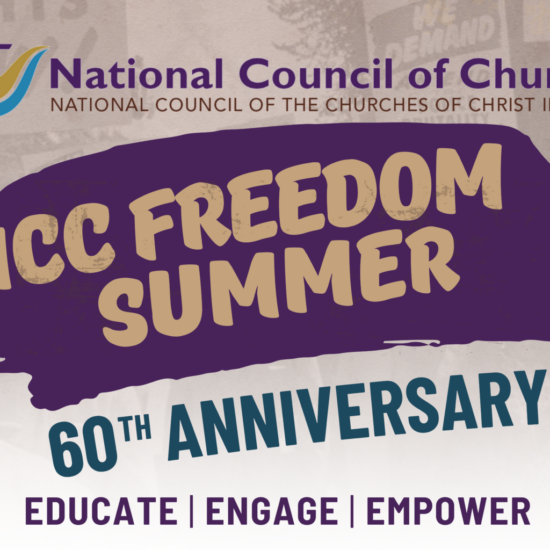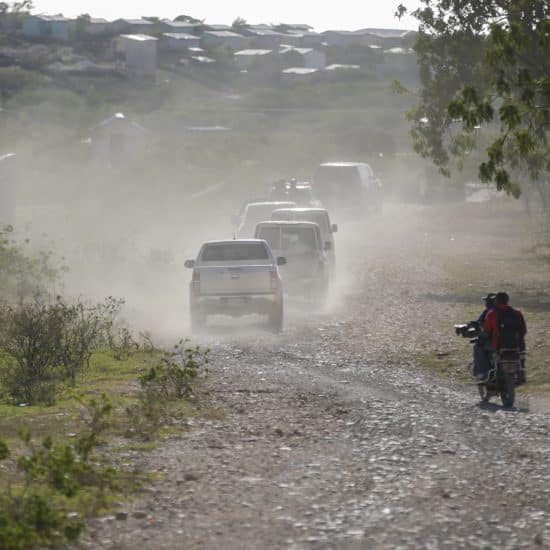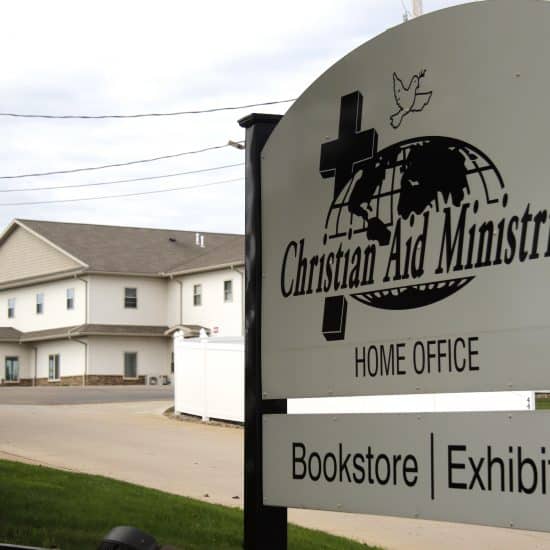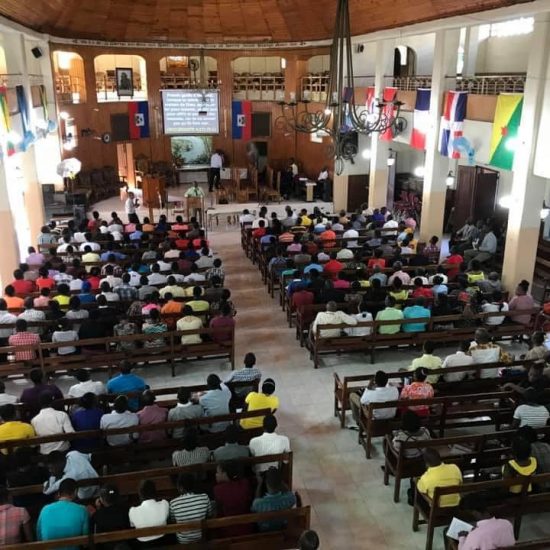GRAND ISLAND, Neb. — Nzunga and Kihomi Mabudiga, missionaries to Haiti, showed American Baptists in Nebraska the multicultural complexion of 21st century missions.
The couple repeatedly thanked participants at the ABC of Nebraska annual convention Sept. 19-21 for supporting ABC USA international missions efforts and providing the means for them to continue their work. They spoke during general sessions and at men and women’s lunch meetings. Natives of the Congo, the Mabudigas have served for 17 years amid the violence and poverty in the Caribbean nation.

Left to right, missionary speakers Ruth Mooney, professor at American Biblical University, San Jose, Costa Rica, and Kihomi and Nzunga Madudiga, who engage in several ministries in Haiti, visit with a family during the annual convention of American Baptists in Nebraska Sept. 19-21 in Grand Island, Neb.
|
Kihomi shared how American missionaries to the Congo led her grandparents to know Christ. She thanked participants, too, for the Baptist hospital. The skill of physicians and nurses helped her when she nearly died giving birth.
Being a woman in a developing country is difficult, she said. Generally, males are given precedence in society. She was fortunate that her parents only had girls.
Because she has lived with and understands the difficulties women face, she focuses her ministry on women and girls in Haiti where the culture revolves around men and poverty is rampant.
Women are the most affected by poverty, she said, because their families look to mothers to hold them together and to provide for their needs. Women struggle to help their families. The poverty and stress cause disease and many die, she added.
She empowers women and teaches them how to help their families through three primary areas — health, economics and mentoring.
Health is a major issue, Kihomi explained. More women died of cholera during the epidemic that followed a major earthquake in 2010 because they were the primary caregivers in their families.
In health ministry, she teaches women how to prevent disease, and how to care for and treat family members when they do become ill. She also teaches about nutrition, birth control and other health issues.
Because women need to make money to break the chain of poverty within their families, Kihomi has started several economic-based ministries, including a microloan system to provide start-up money for woman-run small businesses.
With help, a woman in the Haitian capital was able to set up a business after the earthquake. Now she is able to afford to send her children to school and is helping a friend’s daughter.
She mentors girls to help them stay in school and helps with funding to allow them to attend college. She and her husband often open their home to young women to live with them while they complete their education. Kihomi was the first Baptist woman to be ordained in Haiti and the first to preach. Her ordination has opened the door for others.
Nzunga believes Haiti has received “bad press” over poverty and voodoo. In fact, his family in the Congo discouraged him and his wife from going to the Caribbean country. Because of the negative view, Haitians often deny who they are, he said.
The couple lives on the campus at the Christian University of Northern Haiti, where he teaches theology. He fosters a family atmosphere in his classes and students pray for each other. He usually reads some Scripture and offers comments.
An encounter during a prayer time led Nzunga to listen to his students’ concerns. One young man broke down and cried after Nzunga had spoken on forgiveness. The student confessed that he hated his father and wished the father were dead because he had left the family for another woman.
The young man decided he needed to ask his father for forgiveness and called while in class. Then others began to confess their needs.
By listening to needs, Nzunga developed the “Kids for Kids” ministry to provide a nanny goat or female pig to the poorest children in the church. After the goat or pig gives birth, the family can sell the babies for enough money to pay school fees.
One man didn’t believe his child and beat him because he thought the child had stolen the animal. After the pastor explained the program, the man became a Christian and his family was baptized.
Nzunga also started a ministry to dig wells in the area because the nearby river is polluted.
He trains assistant professors, administers a scholarship program, and visits and preaches in area churches.






